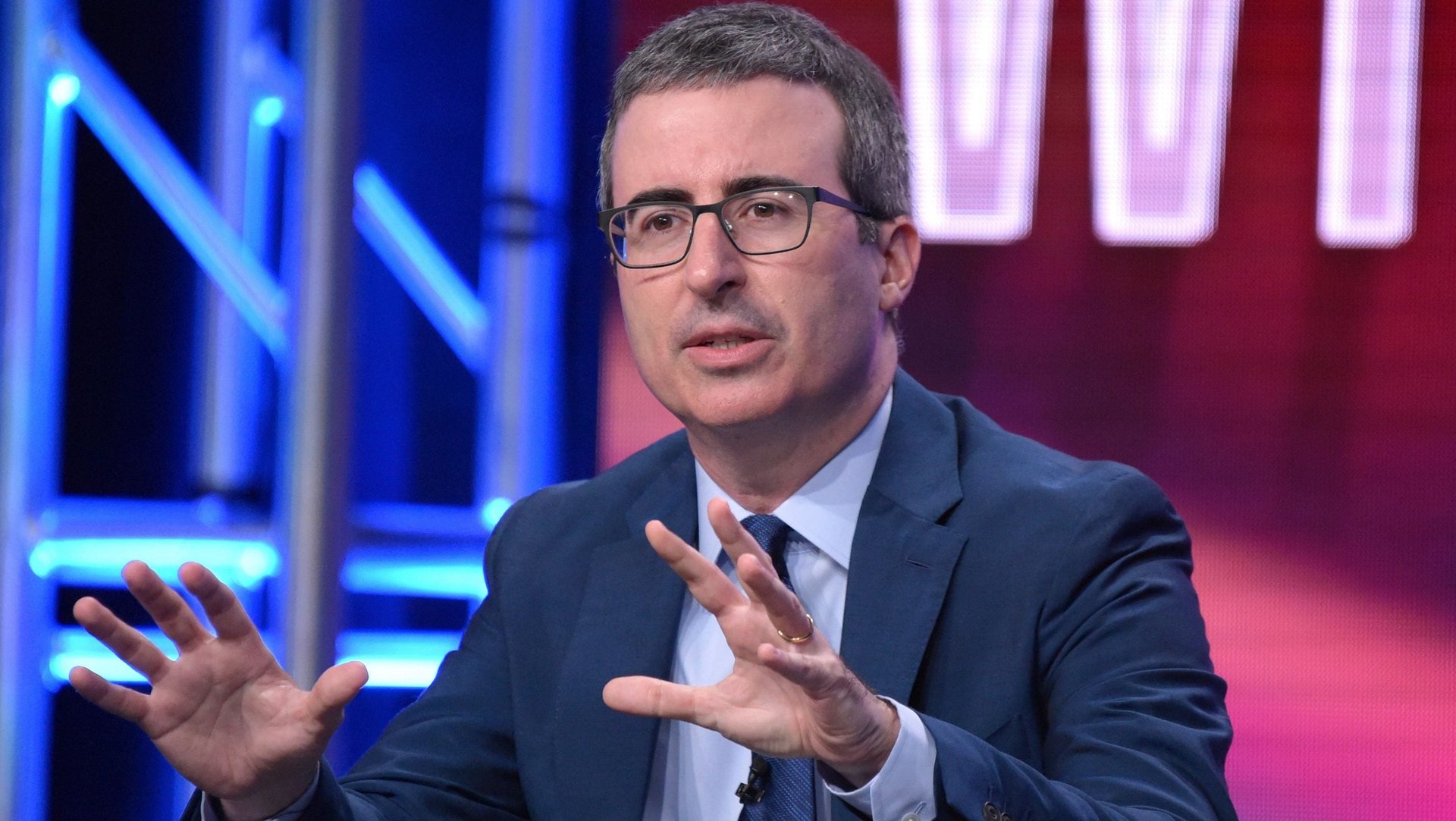John Oliver’s rules of engagement for the “golden age of internet shaming”
John Oliver doesn’t want you to stop making fun of people; that would put the satirist out of a job. But he does want you to think carefully about how and when you do it.


John Oliver doesn’t want you to stop making fun of people; that would put the satirist out of a job. But he does want you to think carefully about how and when you do it.
The British comedian devoted the entire March 17 episode of Last Week Tonight on HBO to a topic familiar to anyone who uses the internet: public shaming and outrage culture. In what Oliver dubs the “golden age of internet shaming,” there’s a familiar cycle that plays out again and again: A controversial video, tweet, or news story goes viral on social media and then immediately—and sometimes thoughtlessly—leads to widespread outrage.
Before you pile on, Oliver outlined an internet shaming checklist to consult:
- Consider the context of the story and the potential consequences.
- Ask yourself, “Is this person’s behavior hurting others, and will that behavior only change with public attention?”
- Ask yourself, “Should we use a person’s name?,” “How much power do they have?,” (And, crucially, “Do they have a soul patch?”)
- Make sure the “punishment” is proportionate to the original offense.
Oliver cited the case of the “Worst Aunt Ever” as an example of internet outrage gone awry. In 2015, a woman made headlines when she sued her 12-year-old nephew after she was injured when he tired to hug her. The internet roundly condemned her as the “Aunti Christ” (public attacks that she later said she found “heartbreaking”) without knowing the real story: She was told she was not allowed to name her insurance company in the homeowners insurance case, and instead had to name an individual. The nephew and the rest of her family understood, and supported her. The bizarre saga was not, as the internet believed, a story of a crazy aunt suing her nephew over a hug.
The second half of the episode focuses on Monica Lewinsky, whose affair with former US president Bill Clinton in the mid-1990s has led to decades of undeserved humiliation. Oliver called out late-night comedians—namely Jay Leno—for perpetuating the stigma attached to Lewinsky’s name and identity with jokes that, at the time and in hindsight, seem totally inappropriate. (Oliver admits he was part of the problem: He once contributed to a distasteful segment on The Daily Show to mark the 10th anniversary of the scandal.)
Lewinsky, who’s now an activist speaking out against bullying, told Oliver in an interview (15:44-26:35 in the video) that social media is exacerbating the pain felt by the subjects of internet scorn. The anonymity of the internet, she suggested, allows people to create new personas, which often amplify the worst aspects of their personalities.
Oliver makes it clear he’s not anti-shaming in general—a lot of good can come out of it, he says, including increasing accountability for public figures who otherwise aren’t pressured to change. He mentions Fox News talking head Tucker Carlson as someone who fully warrants a thorough public shaming. Carlson checks all the boxes on Oliver’s list: He is a celebrity, has made many appalling comments publicly, and shows no remorse whatsoever.